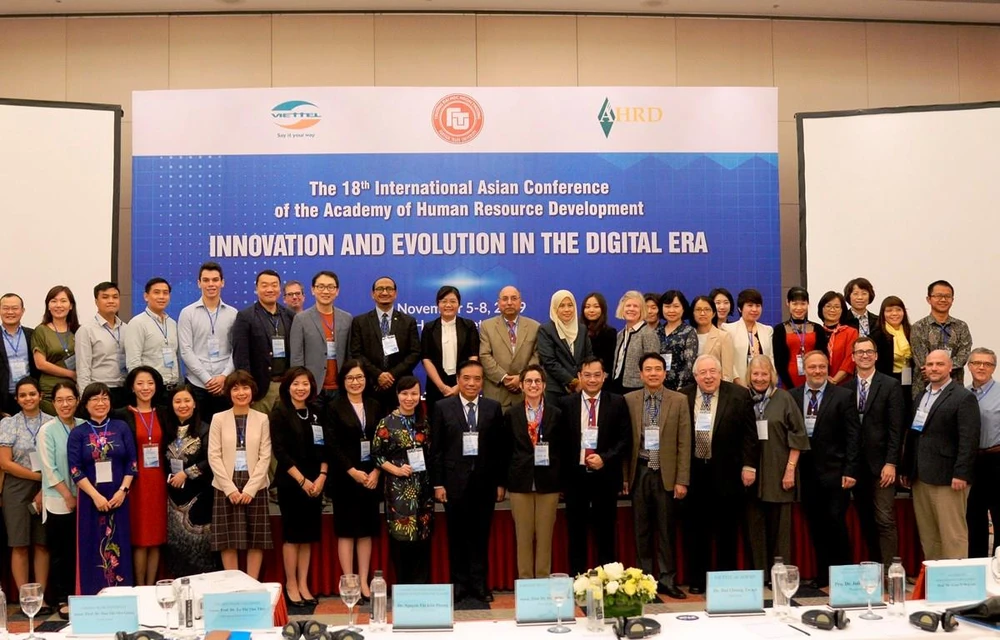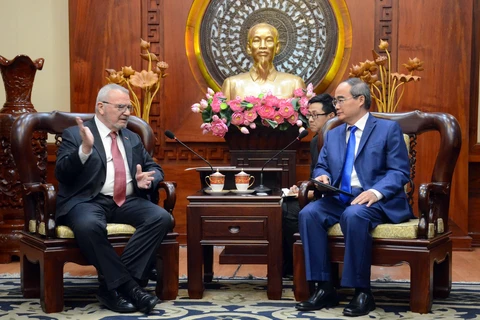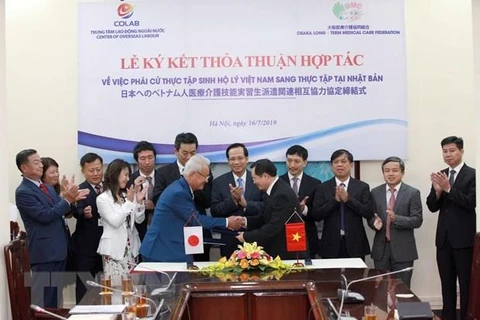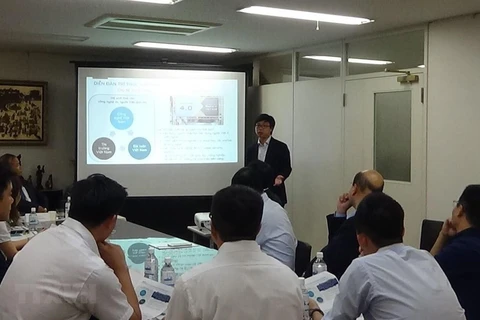
Hanoi (VNA) – More than 120 representatives from 17 countries have gathered at an international conference in Hanoi to discuss issues related to human resources development in the digital era.
The 18th International Asian Conference of the Academy of Human Resource Development (AHRD), themed “Innovation and Evolution in the Digital Era”, is taking place from November 6-8, focusing on innovation and evolution in the digital era.
This is the first time an international conference on human resources has been held in Vietnam. It is organised by the Foreign Trade University (FTU) in collaboration with the Academy of Human Resource Development and Viettel Academy.
The participants include many scholars, policy makers, experts and human resources managers from Vietnam and abroad.
They discussed ten major groups of issues, including human resources in the country, region and world; human resources with sustainable development; leardership capacity development; training in enterprises and workplaces; social responsibility and ethics in human resources development; information technology and communication with human resources development; new issues and innovation in human resources development.
Speaking at the event, FTU President Bui Anh Tuan said the conference is held based on the urgent demands of human resources development in Vietnam in the context of the industrialisation and modernisation of the economy, the international integration and the profound impact of the fourth industrial revolution.
The Fourth Industrial Revolution and digitalisation changed the way the Government, organisations and businesses in Vietnam work with human resource development.
“Increasing globalisation, international integration and especially ever faster technological evolution, however, have changed the roles of human resources. They have also required us to change our approaches, strategies, and methodologies to develop human resources from fundamental to more innovative ones,” said Tuan.
 Nguyen Thi Kim Phung, head of the Higher Education Department under the Ministry of Education and Training, speaks at the conference (Photo: VietnamPlus)
Nguyen Thi Kim Phung, head of the Higher Education Department under the Ministry of Education and Training, speaks at the conference (Photo: VietnamPlus) According to Nguyen Thi Kim Phung, head of the Higher Education Department under the Ministry of Education and Training, one of the big challenges for Vietnam’s development in the coming years is the issue of increasing labour productivity.
“Improving and promoting labour productivity, speeding up the country’s process of industrialisation and modernisation and minimising the development gap with other countries in the region are a key task for Vietnam to ensure the goal of fast and sustainable development,” stressed Phung.
She said that there was still big gap in labour productivity between Vietnam and other ASEAN countries due to slow process of labour restructuring science, levels of the country’s science and technology, reform and innovation are low, or limits exist in human resource management and quality.
“Reforming higher education is considered one of the key solutions to develop high-quality human resources to meet the needs of rapid and sustainable development in Vietnam,” she said.
Phung said Vietnam has taken various measures in reforming higher education, such as the revised law on higher education, and developing the Overall Strategy for higher education development of Vietnam in the period 2021-2030.
Priorities are also given to train teachers and improve capacity of lecturers and managers of higher education institutions to meet the requirements of fundamental innovation, to increase investment and attract new resources for higher education development and create a mechanism to strengthen internationalisation of higher education for integration and development following international standards.
Participants said that human resource development at both national and firm levels was of urgent need in the context of the Fourth Industrial Revolution as it determines productivity, competitiveness, and ultimately sustainable development of nations and businesses.
According to statistics from the General Statistics Office and Ministry of Labour, War Invalids and Social Affairs, there are still about 125,000 to 135,000 unemployed labourers out of 5 million workers with university degrees, accounting for about 2.2 to 2.5 percent of total university-level workers. In particular, limited professional and foreign language skills are the main causes leading to the unemployment of university-level workers./.
























